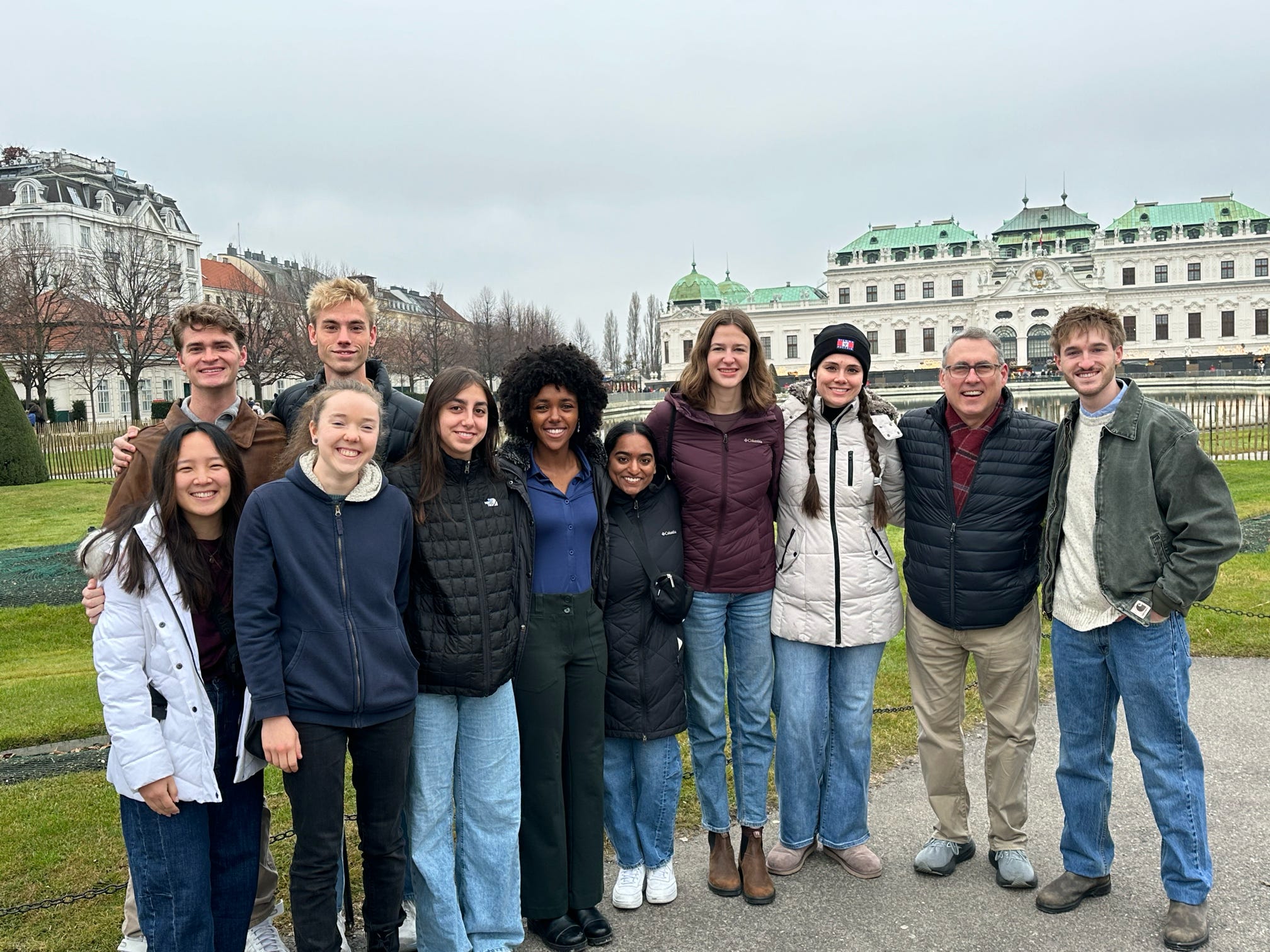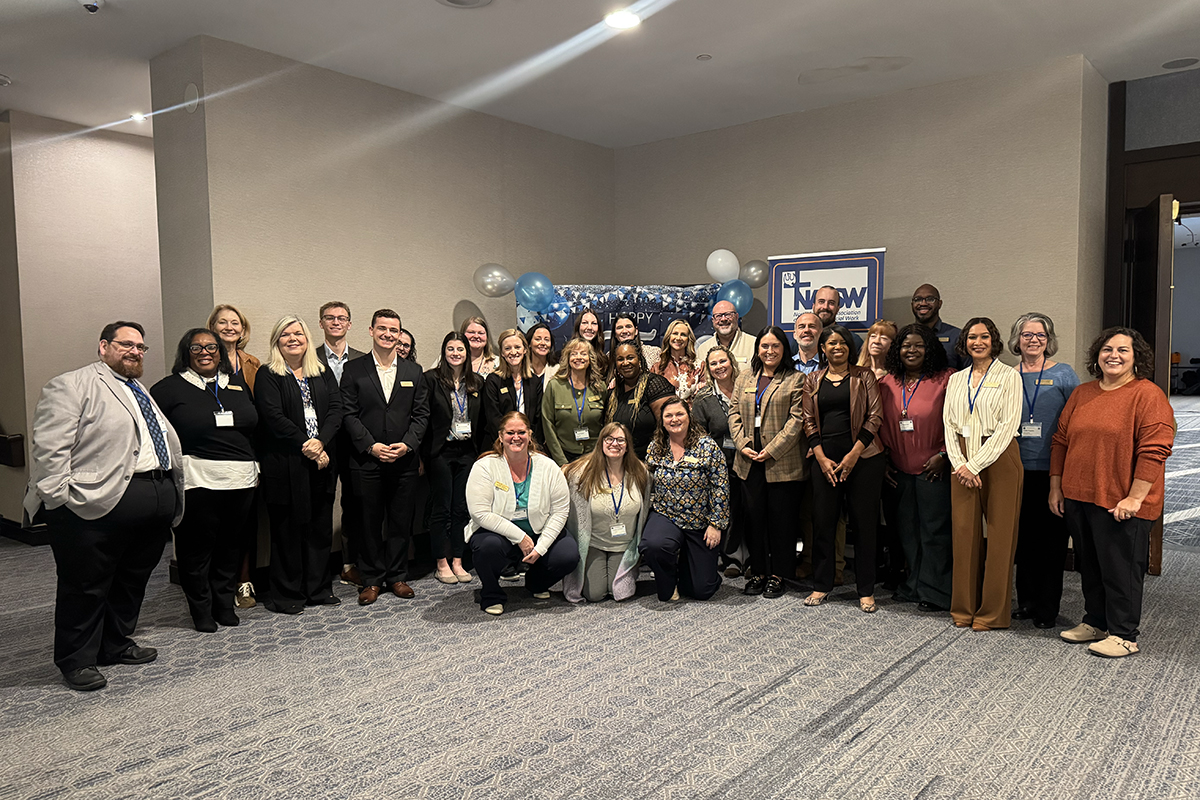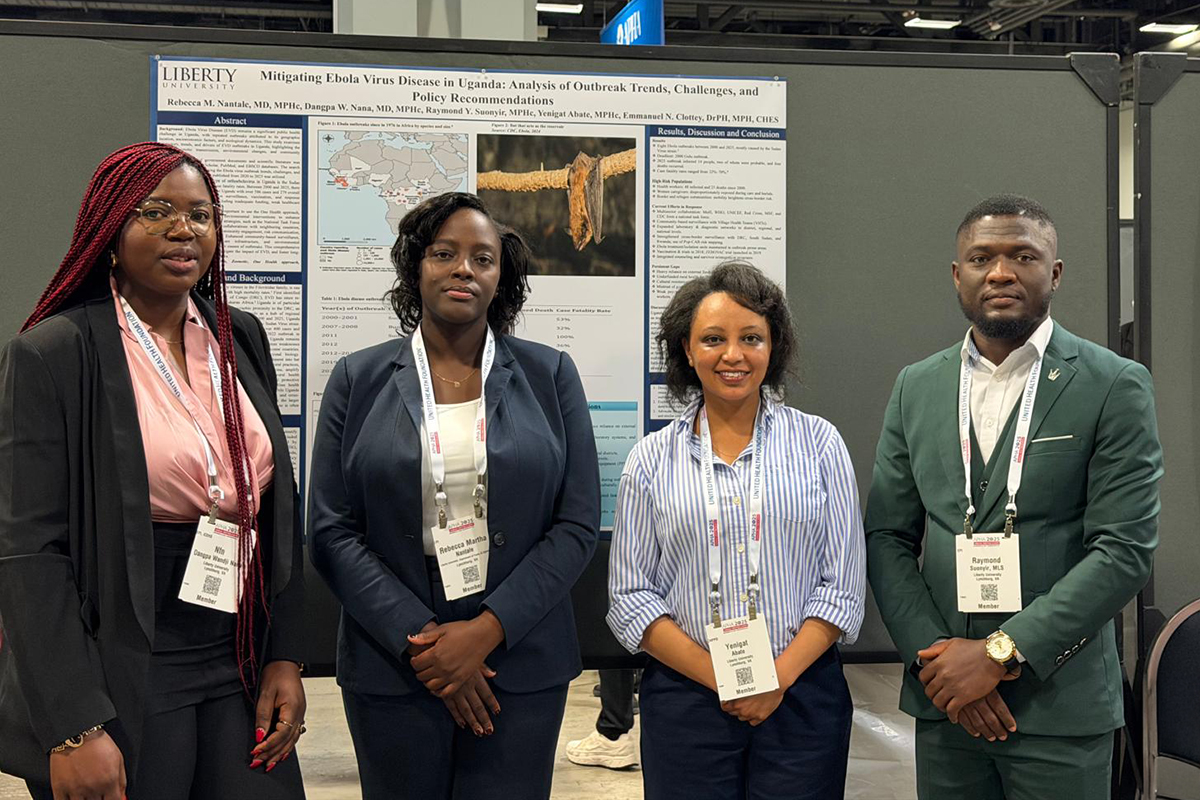Summer internships give student scientists unique opportunity in university labs
August 28, 2024 : By Ryan Klinker - Office of Communications & Public Engagement
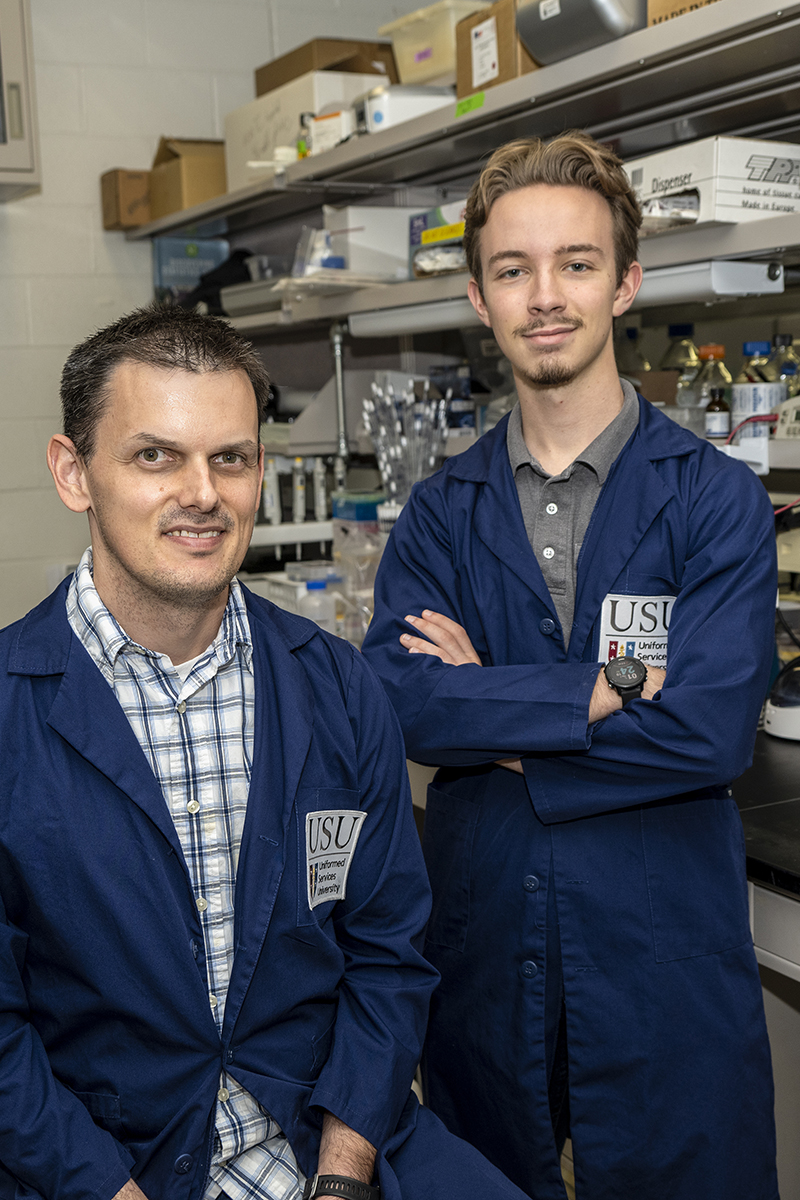
For the last few months, three Liberty University undergraduate students from the Department of Biology & Chemistry have spent the summer learning the practices of a research lab environment at Johns Hopkins University (Baltimore, Md.), Uniformed Services University (Bethesda, Md.), and University of North Carolina at Chapel Hill.
Continuing to build on the relationships with Johns Hopkins and Uniformed Services University shepherded by Dr. Heidi DiFrancesca, Dean of the School of Health Sciences, the school has expanded their summer undergraduate research program, adding an additional location based on an existing relationship between faculty of Liberty and the school. The expanded summer research internship allows students to see how other labs operate and then return to Lynchburg with this added knowledge.
Senior biochemistry and molecular biology student Ethan Carlile interned under Dr. Jeremy Rotty, an assistant professor in the Department of Biochemistry and Molecular Biology at Uniformed Services University. In the lab, they used a special genetic tool called Create Blocks to control when and where to remove a gene in cells. Normally, the tool is safe for most cell types, but they noticed it might be harmful to microglia, which are some of the brain’s immune cells. Carlile used techniques that allow researchers to see how the microglia are functioning, especially how they move through confined environments within the body. Rotty said Carlile’s “effort and dedication” were evident throughout the internship.
Carlile said the internship gave him valuable experience outside of a classroom.
“This internship has been most crucial and exposed me to different techniques than what you would see at Liberty in terms of just the work that you do in classes and the labs that we have there,” Carlile said. “It’s been interesting to see how other labs work. I was able to work as a team with the grad students there, and I was able to accomplish something, so that was a big boost in terms of knowing that I am, in fact, confident as a scientist.”

Under the direction of Dr. Jiou Wang, a biochemistry and molecular biology professor at Johns Hopkins University’s Bloomberg School of Public Health, senior biomedical sciences student Oluwakonyinsola Adebayo worked in a lab that focused on neurogenic diseases like Alzheimer’s and Amyotrophic lateral sclerosis (ALS). Adebayo spent much of her time looking at cell lines and the mitochondria of related cells, studying different mutations and keeping records of mice tests. According to Wang, she “demonstrated a strong foundation in the necessary skills” and was “a valuable member of the team.”
“The opportunity was beyond anything I could have imagined,” Adebayo said. “People came in every day locked in for research and left after doing a day full of research. Having the basis I have built here at Liberty, and then developing it when I got (to Johns Hopkins), really expanded my horizons, and I benefited from that. It helped me realize that I want to incorporate research in my future endeavors in medicine after I go to medical school.”
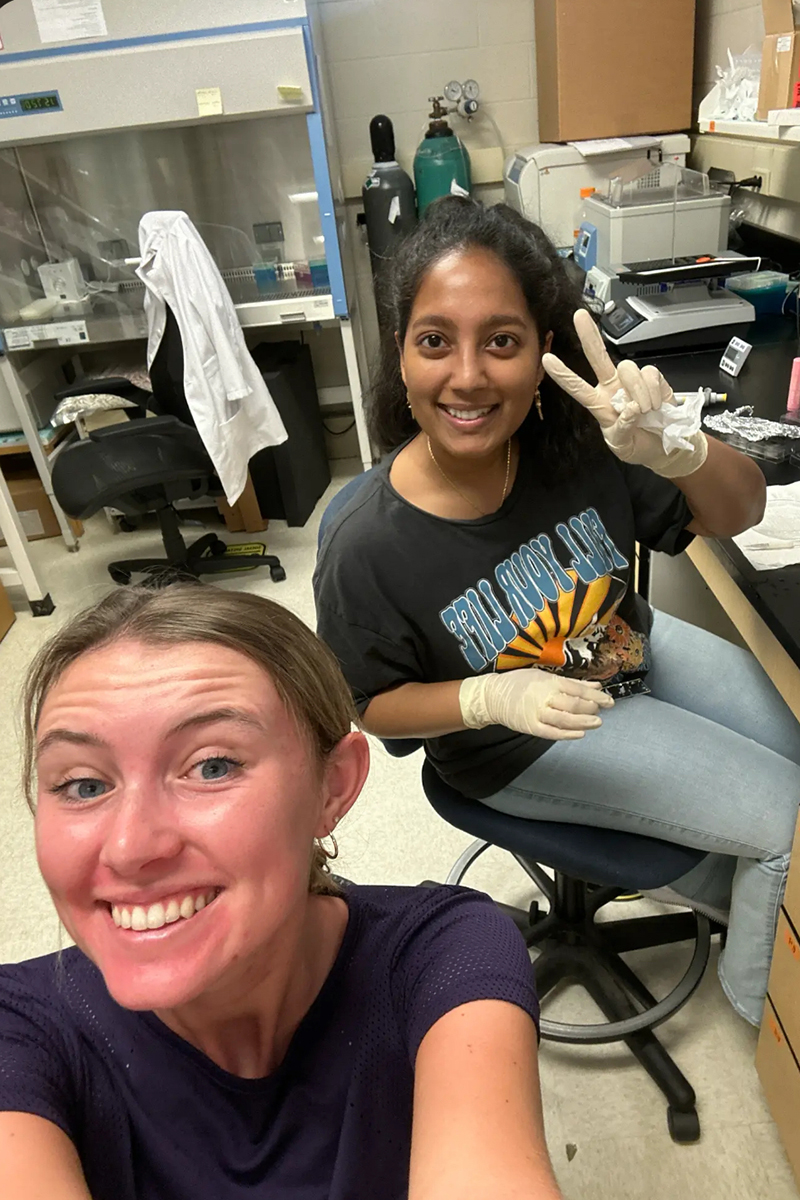
Brooke Chapple, a senior studying biochemistry and molecular biology, discovered an interest in neuroscience during her internship under Dr. Sylvia Fitting with the Psychology and Neuroscience Department at UNC Chapel Hill. Fitting’s lab focuses on cannabis use in relation to HIV treatment, with the endocannabinoid receptors potentially lessening symptoms of the infection. Chapple mainly tested a certain receptor related to cannabis use in six different regions of the brain in HIV positive and HIV negative mice. As a result of her work on the project, she will co-author a scholarly publication. Fitting said Chapple’s “proactivity” and “high quality of work” stood out.
Having not studied neuroscience as part of her Liberty degree, Chapple said the new experience was fascinating.
“I love the clinical side of science and scientific research, so the neuroscience itself was cool, because I got to see different areas of the brain light up, and I got to see a bunch of different techniques and instruments,” Chapple said. “For my future, I’m thinking more about the neuroscience aspect now that I got to do that this summer.”
